There is a common misunderstanding in modern world about knowledge, science and spirituality. This misunderstanding originated from some uninformed people, who reither speculate than inquire from authoritive source. Such misconseption had gone so deep in human mind that nowadays everyone believe that vedic scriptures or spirituality is outdated impractical folklore based myth and mere faith of sentimentalist. Such ignorant people are dreaming deep in the burrow of their ignorance and misfortune caused by the lack of real knowledge, and faild to uplift and improve themselves in light of goodness. In addressing this misconceptation we should understand the basic concept of knowledge, levels of knowledge, its classification as per vedic scriptures and its source the Supreme Personality of Godhead.
To start with we should know the concept of Authority and the need of authority.
ämnäya präha tattvaà
The source of truth is the Veda so it should be taken as the topmost authority. (Dasa-mula-tattva by Bhaktivinoda Thakur).
saha-yajïä prajä såñövä puroväca prajäpatiù – When the Supreme Lord created the living entities The Lord created the Vedas the conduct of mankind. These Vedas explain how to perform our daily duties as sacrifice (yajïa). Bhagavad Gita 3.10
As Srila Prabhupada explains the concept of authority in introduction of isopanisad, we can understand or know our father only by the grace of our mother. There is no need of experiment. Similarly if we want to know something beyond our experience, beyond our experimental knowledge, beyond the activities of the senses, then we have to accept the Vedas. There is no question of experimenting, and if we do experiment we come to same conclusion because it has already been experimented. It is already settled. The version of the mother, for instance, has to be accepted as truth. There is no other way.
Since antiquity Vedic literature has elaborately revealed three different levels of Vedic understanding namely jïäna, vijïäna and prajïäna:
- Jïäna: Theoretical knowledge, Bhagavad Gita 5.16 describes jïäna clearly
jïänena tu tad ajïänaà yeñäà näçitam ätmanaù
teñäm äditya-vaj jïänaà prakäçayati tat param
When, however, one is enlightened with the knowledge by which nescience is destroyed, then his knowledge reveals everything, as the sun lights up everything in the daytime.
Srila Prabhupada mentions in the BhaktiVedanta Purport; “At night we see everything as one in the darkness, but in daytime, when the sun is up, we see everything in its real identity. ” The Jïäna removes ignorance. When ignorance is removed, the living entity will not suffer.
- Vijïänaà: scientific or practical knowledge, vijïänaà means to practice or apply the Jïäna in day to day life. Srimad Bhagavad 4.17.5 explains:
sanat-kumäräd bhagavato brahman brahma-vid-uttamät
labdhvä jïänaà sa-vijïänaà räjarñiù käà gatià gataù
The great saintly King, Mahäräja Påthu, received knowledge from Sanat-kumära, who was the greatest Vedic scholar. After receiving knowledge to be applied practically in his life, how did the saintly King attain his desired destination?
vijïänaà yajïaà tanute karmäëi tanute ‘pi ca
taittiriya upanisad 2
vijïäna (practical knowledge) means performing (yajïa) this also involes day to day activities (karma) for the pleasure of supreme Lord sri Hari.
- prajïänaà: (prema miśra) pürëa-vikasita-jïäna – matured or completetly realized knowledge of pure love of Godhead, the çruti, Båhad-äraëyaka Upaniñad, 4.4.21, clarifies by defining prajïänaà as prema-bhakti, as noted in this verse:
tam eva dhéro vijïäya prajïäà kurvéta brähmaëaù
“An intelligent equipoised person who has realized Brahman must endeavour to know the Supreme Absolute Truth, the Personality of Godhead, and surrender unto Him with loving devotion.”
çré-bhagavän uväca
prajahäti yadä kämän sarvän pärtha mano-gatän
ätmany evätmanä tuñöaù sthita-prajïas tadocyate
The Supreme Personality of Godhead said: O Pärtha, when a man gives up all varieties of desire for sense gratification, which arise from mental concoction, and when his mind, thus purified, finds satisfaction in the self alone, then he is said to be in pure transcendental consciousness (prajïänaà).
And furthermore In Vedic literature source of knowledge has also been classified under six headings (usually these are also referred to as pramanas).
(1) Pratyaksya: It means what we have experienced through our senses. Since our senses are not perfect, the knowledge gained by this source could be tained by inperfection.
(2) Parokshya: Knowledge we have not experienced with our own senses, but have gathered from the experience of others. For example a common man gets some knowledge from scientific invention and discoveries.
(3) Anumana: Inductive knowledge or hypothesis like Darwin theory or Bigbang theory etc. For example I see smoke on the hill I infer there is fire because in my experience smoke is the byproduct of fire. So if there is smoke there must be fire.
(4) Aparoksya: Refers to information beyond the material sphere and only percievable through transcendental perception. This also refers to realized knowledge through direct spiritual perception.
A sort of hazy experience, which is indistinct, where the subject and material object come together, and the material object vanishes in the subject. Monists, proponent of impersonalism or followers of Sripad Adi Shankaracharya’s Kevala-Advaita/Māyāvādā-philosophy discuss the gradation of consciousness up to this point.
(5) Adhoksaja: (beyond sense perception) Sripad Rāmānuja Āchārya, Madhavaacharya, Vishnu Swami, Nimbarka Acharya and other Vaishnava Āchāryas discussed about a fourth stage. The experience in this stage is beyond the reach of our gross or subtle sensual capabilities. This experience comes to our gross plane of understanding only by the sweet will of Absolute. This superior knowledge can force down all our knowledge of the experience of this mundane world.
(6) Aprākrita: (not material) Śrīmad Bhāgavatam talks about this highest stage. Sri Chaitanya Mahaprabhu and his followers like six goswamis discussed this stage of experience, which is very similar to this mundane world, yet is not mundane. Vedic literature explains that the mundane world or ‘illusory world’ is a perverted reflection of the world of absolute. This is ultimate stage and the most perfect stage.
And here may come the question how somebody can attain the highest stage?, then the only answer is follow the devotional process. If someone wants to experience the taste of honey then he/she has to taste it by putting “honey” inside the mouth. There is no other way! Similarly, one must properly follow in his/her life the scientific process that Vedic literature elaborates and thus he/she can also attain the results of those practices.
But someone may argue how is it practical for a man in household life to practice the process? Then the answer is: Due to a lack of proper knowledge about Vedic system, many have developed a misconception that to follow Vedic system one has to give up everything (tyāga – renunciation) and has to go to forest. One must first study carefully Śrīmad Bhagavad-gīta to get an introduction into the Vedic system. We know that Arjuna (who was a householder) also wanted to follow the path of renunciation (tyāga – he wanted to leave everything and wanted to go to forest) when he was in extremely distressed condition during the great Mahābhārata war. Bhagavān Sri Krishna in Śrīmad Bhagavad-gīta informs us through Arjuna that there is much higher level of consciousness – dedicating consciousness (bhakti) and to attain bhakti one does not have to renounce but one has to learn under an expert guide to use. As always Srila Prabhupada used to mention “Action the same Consciousness different”. We should change our consciousness to live the vedic life as Arjuna did, doing the prescribed duty as service to lord.
As we mentioned before the Vedic text is to be understood and practiced in our day-to-day life. Here we give an easy example, which anyone can comprehend as it is a very commonly seen. The Veda says in the hymns called ‘Mantra Puñpam’.
yo ‘psu nävaà pratiñöhitäà Veda / praty eva tiñöhati /
“One who thus understands that in the same way the boat floats on water, will be similarly well situated.”
The hymn describes that different demigods controlling water (Varuëa), growth (Candra), life (Sürya) and others, are powerful because they are intimately connected with the Supreme Lord trough devotional service (äpaù). Thus they are the shelter of different energies and functions. One who knows their position and one’s own position becomes wealthy and well established and successful in one’s duties or occupation. On the end it concludes with the analogy of the floating boat saying: one will be well established even in an unstable situation, like the boat on the liquid water.
The modern science calls this the principle of buoyancy of Archimedes. “A body immersed in a fluid experiences a buoyant force equal to the weight of the fluid it displaces.” It is used in physics to explain weight loss of a submerged object. However this Vedic principle has much more to say.
A boat can float and carry a large weight as payload because it displaces water of a larger weight and thus it can be placed on an unstable liquid surface. The boat is a solid material and the water is liquid. If the boat is tilted beyond its limit, in spite of being empty will fill up with water and sink. So this effect can only be utilized if one understands the nature of both object the boat and water.
The hymn as we mentioned before introduces the point that all great demigods positioned in different authoritative positions gain their authority and ability from the Supreme Lord. This authority is given in the Vedas as religious conduct applicable for all. Let us see this in action.
There are two principles herein the stable male principle and the constantly changing feminine energy of variety. The boat is representing the stable principle by being on the top of the water representing the female principle of variety. Variety here indicates that water sometimes peaceful, other times wavy and again other times stormy. Here the instruction is given to husbands, that woman may exhibit various natures, being peaceful, happy, frivolous, angry, and so on. In spite of all these externals the man must remain calm and supportive in all these situations as the boat always sitting peacefully on the top of the sea even if it is wavy or violent.
The same is applied in any other relationships. The king must be a stable man supporting and sheltering all his citizens. The parents must in the same way support and shelter their children even if they are naughty and cause a lot of trouble. They should not get angry although they may exhibit anger to teach their children, but internally they have to maintain stability and equilibrium as the boat. Same principal is applied in all relations like teacher and students (Guru-Sishya), manager and subordinates etc.
Another angle of the same principle is that the different demigods represent the different energies of The Supreme Lord Hari. The boat floats on the water and reacts to its actions accordingly. The same time the water always keeps its lord on top or superb position, thus water takes a subordinate position under the boat. One will be always in some position where being served, pleased or respected. Thus one may be placed in a superior position. This automatically invokes a reciprocal position of giving support and shelter to the other party who are exhibiting these service, respect and so on. Children respect their parents if they are giving the appropriate shelter to them. This shelter does not restricted only to food, but to parenting, educating, giving time to explain things, deal with their challenges, personal guidance, expressing love, receiving love shown, giving encouragement, demanding discipline and so on, in one word they CARE for them. If so, than the children will certainly respect their parents. The same is applied in other relationships as we mentioned before (king–citizens, husband–wife, employer–worker and so on). Neglecting these principles is selfishness. Out of such selfishness one fails to reciprocate or be responsible. It is like taking the golden egg of chicken and not feeding her. Such irreligious activity will bring ruin on us and ruins our relationships. The Veda gives us these principles for our benefit. These principles must be always applied to every spheres of our life. If we take this wisdom than we will be benefited.
The final point of the hymn is that the Supreme Lord also maintain this stable position in spite the conditioned living entities purposefully disobey him due to their selfishness. He does not get angry. If there is any anger is seen that is due to trouble we create for ourselves. It is like a child cutting the branch of a tree on which he is sitting. The branch finally falls and the child falls with it. This was not a punishment for his action, nor did the parents tell the branch to fall in regard to rectify their child’s misbehavior. It was purely the foolishness of the child. So the same way we are “punished” for our sins. This is not the Supreme Lords revenge on us for disobeying Him. He loves us and he never gets angry with us. He is there for us whenever we turn to Him. He is like the boat on the sea. He deals with his energies like us as we seek His attention. One who understand this principle of the boat and water and apply it in ones life, will be successful like those great demigods who control light, water and so on. Such a person will lovingly worship The Supreme Lord with all one’s action and thus one’s life becomes a sacrifice, not by sitting in a cave and meditating on some void idea or by chanting some big mantras, but by daily actions in Krsna consciousness.
Hare Krishna.
(Excerpted from the lecture delivered by author to IIT Students, Kanpur)
From the Book “Origin of Science”
Views: 32

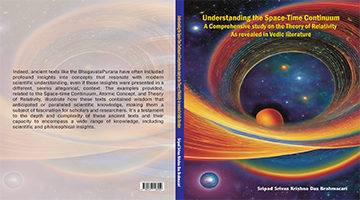
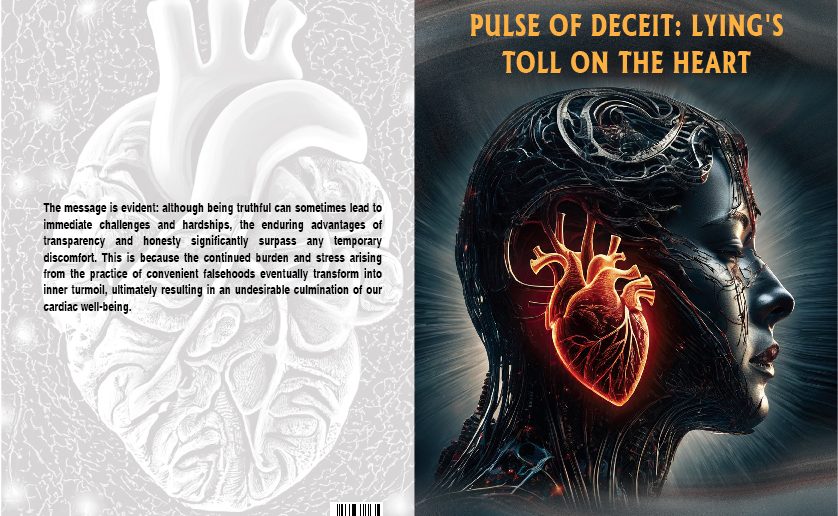
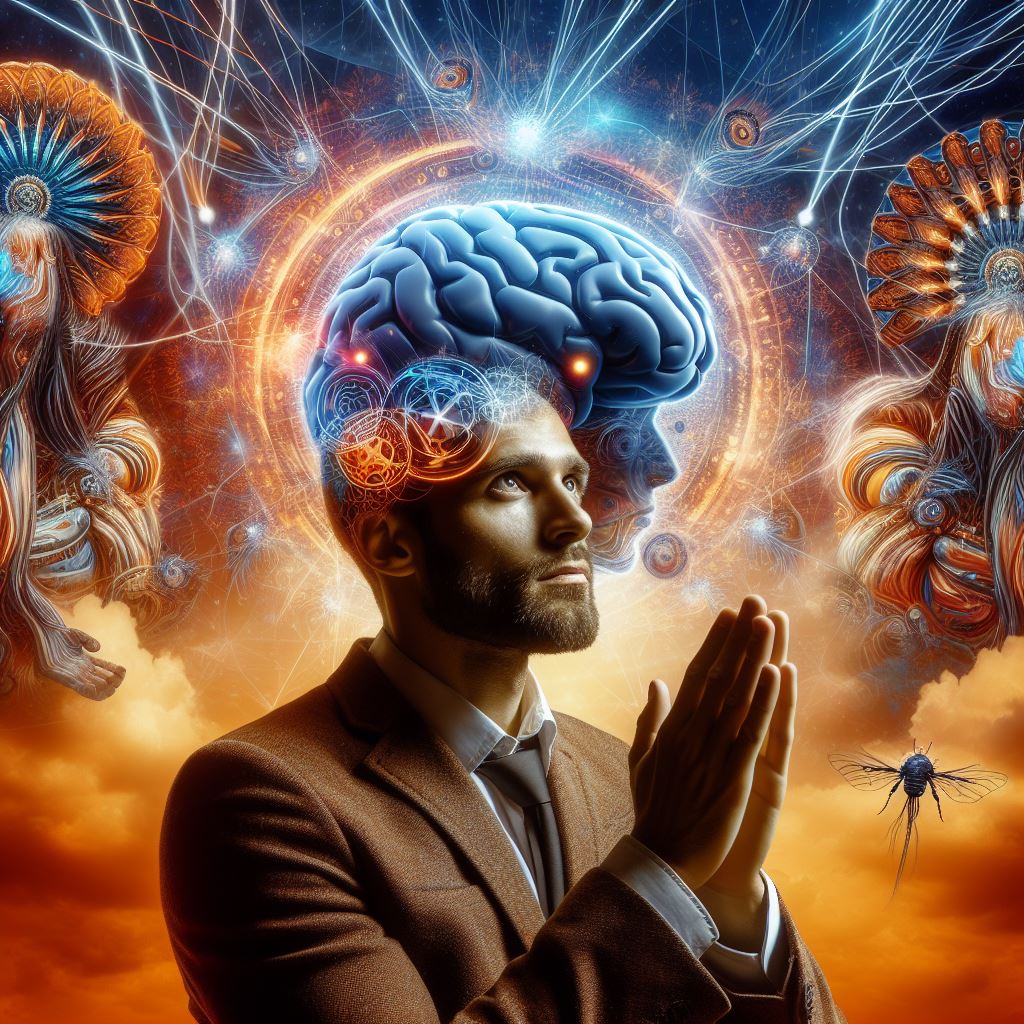










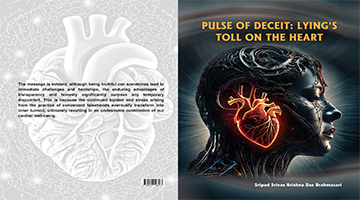
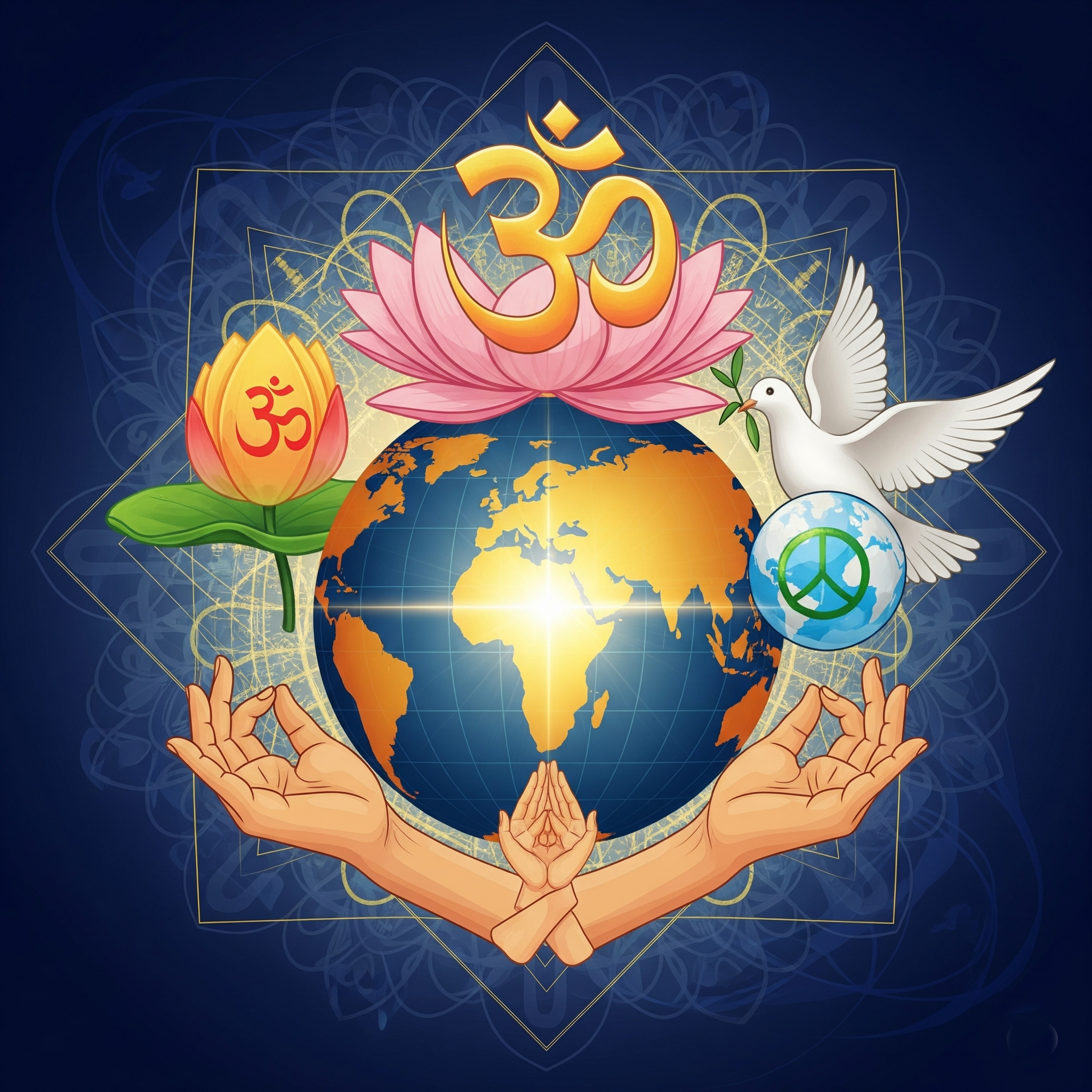

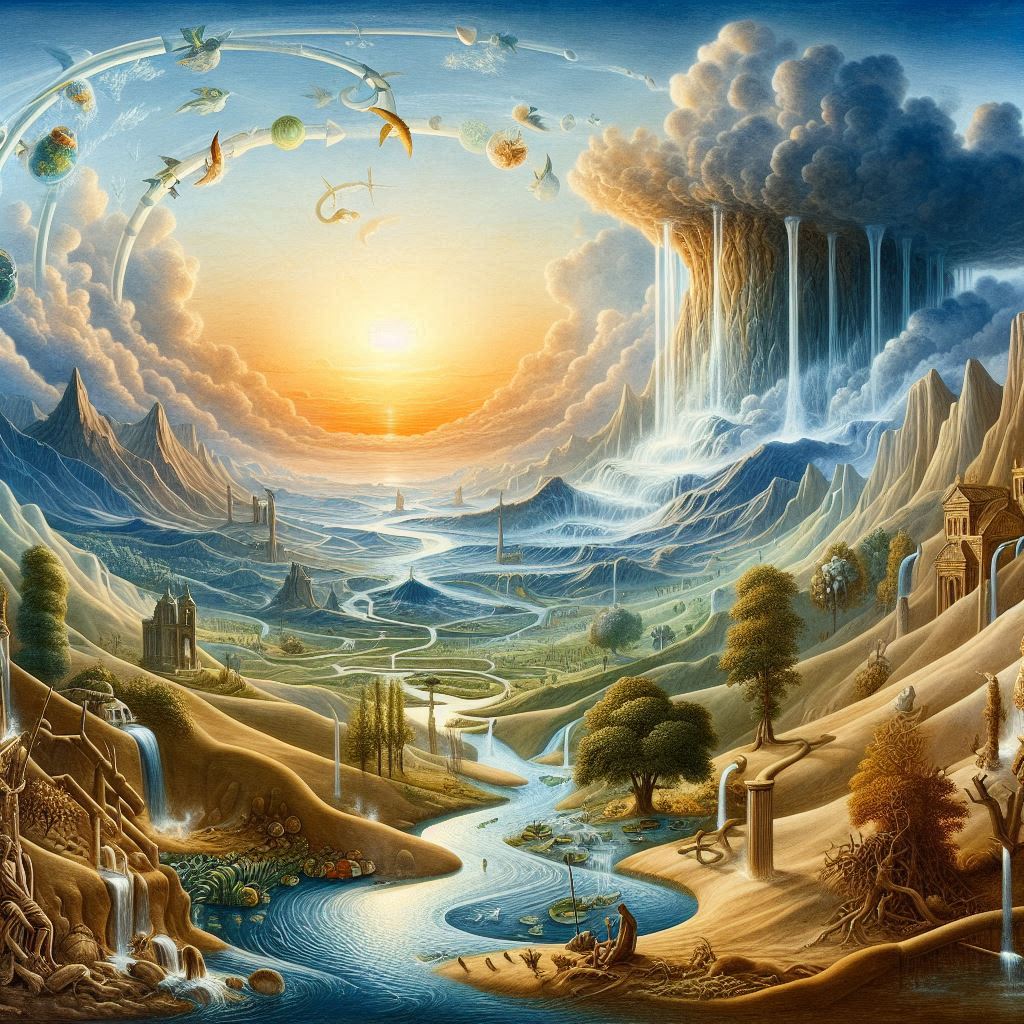
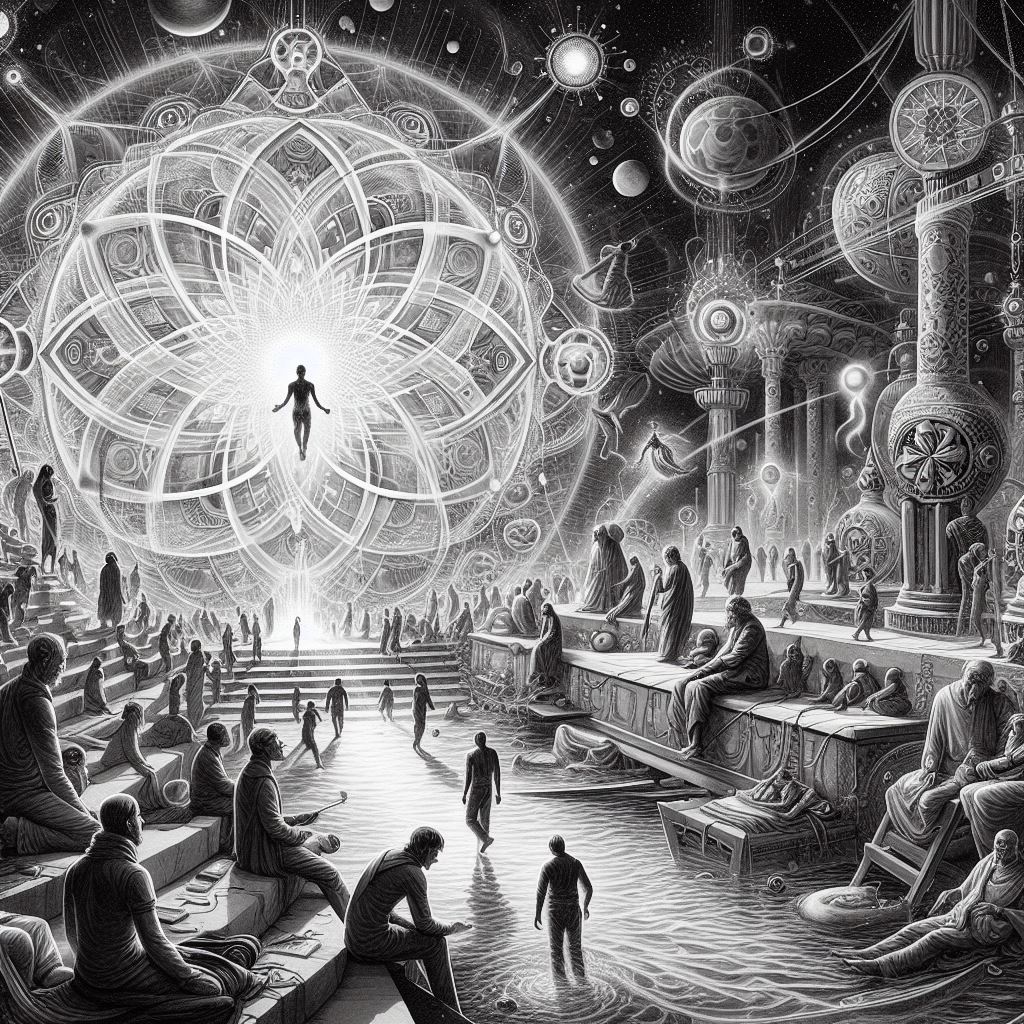
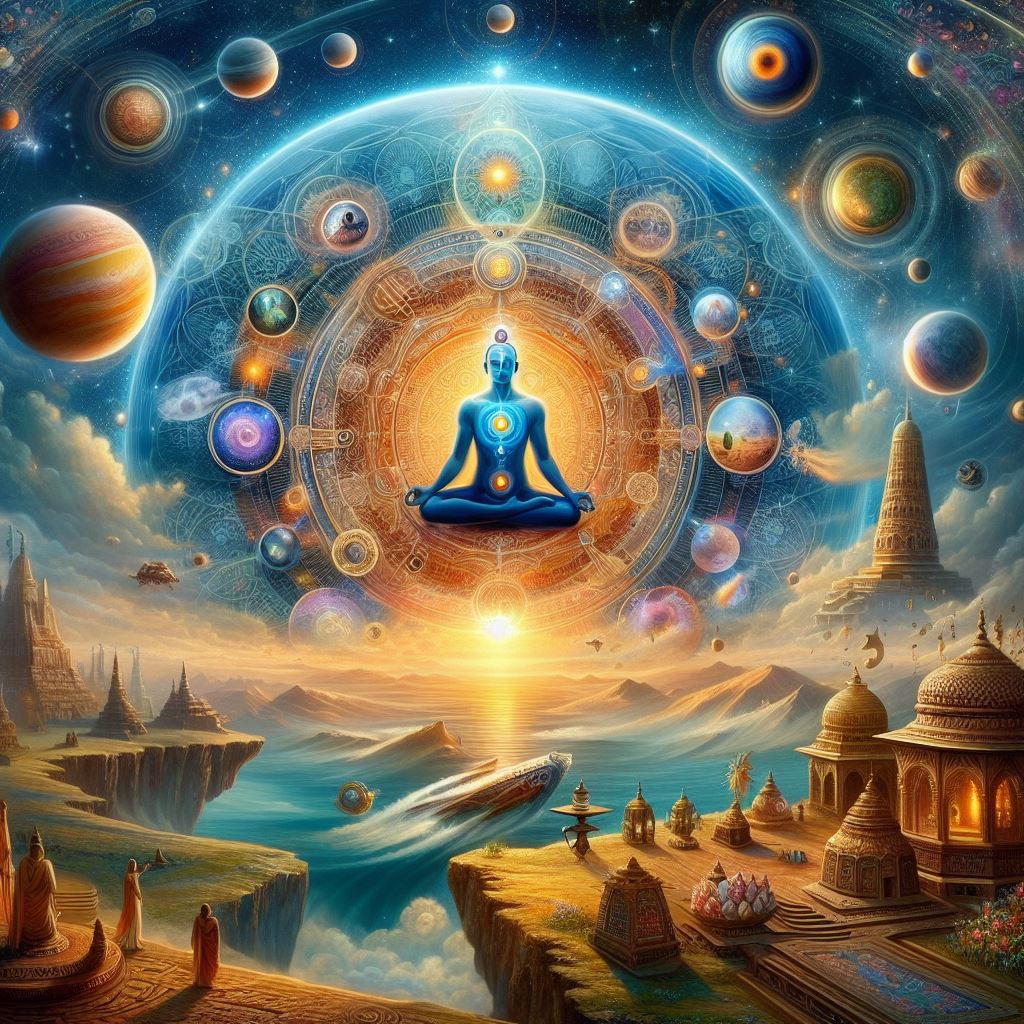

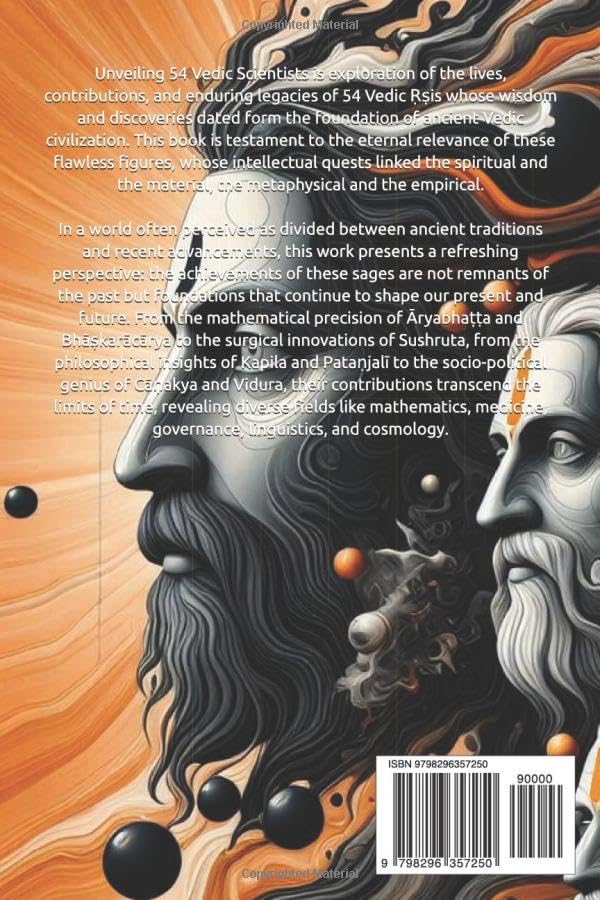

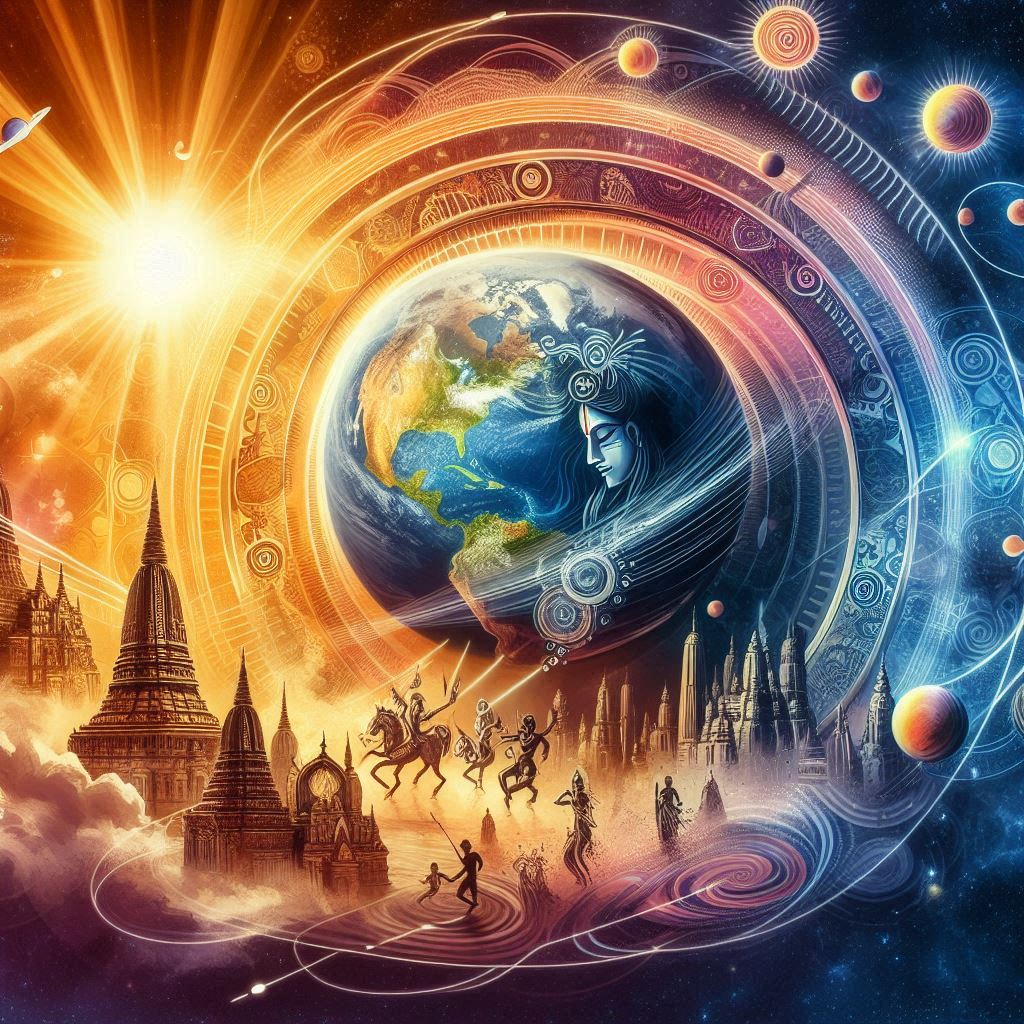
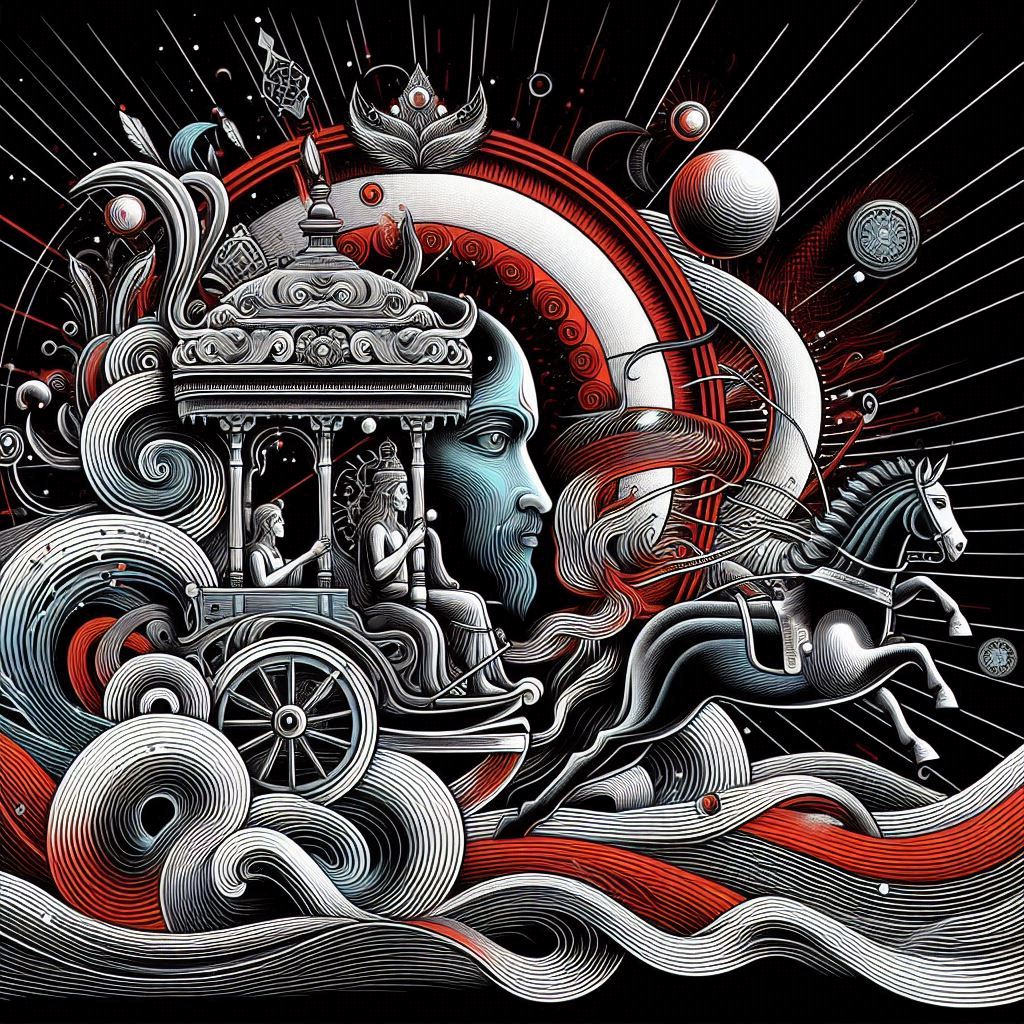
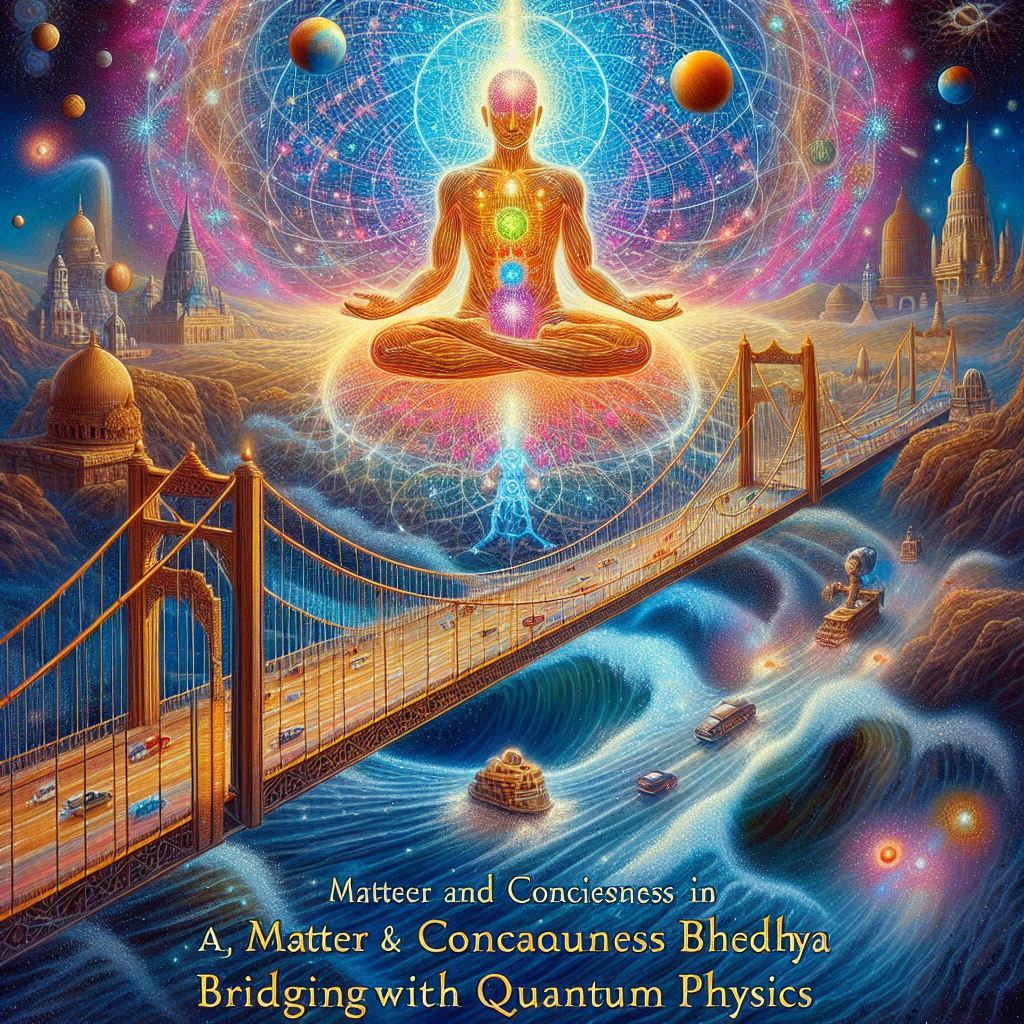
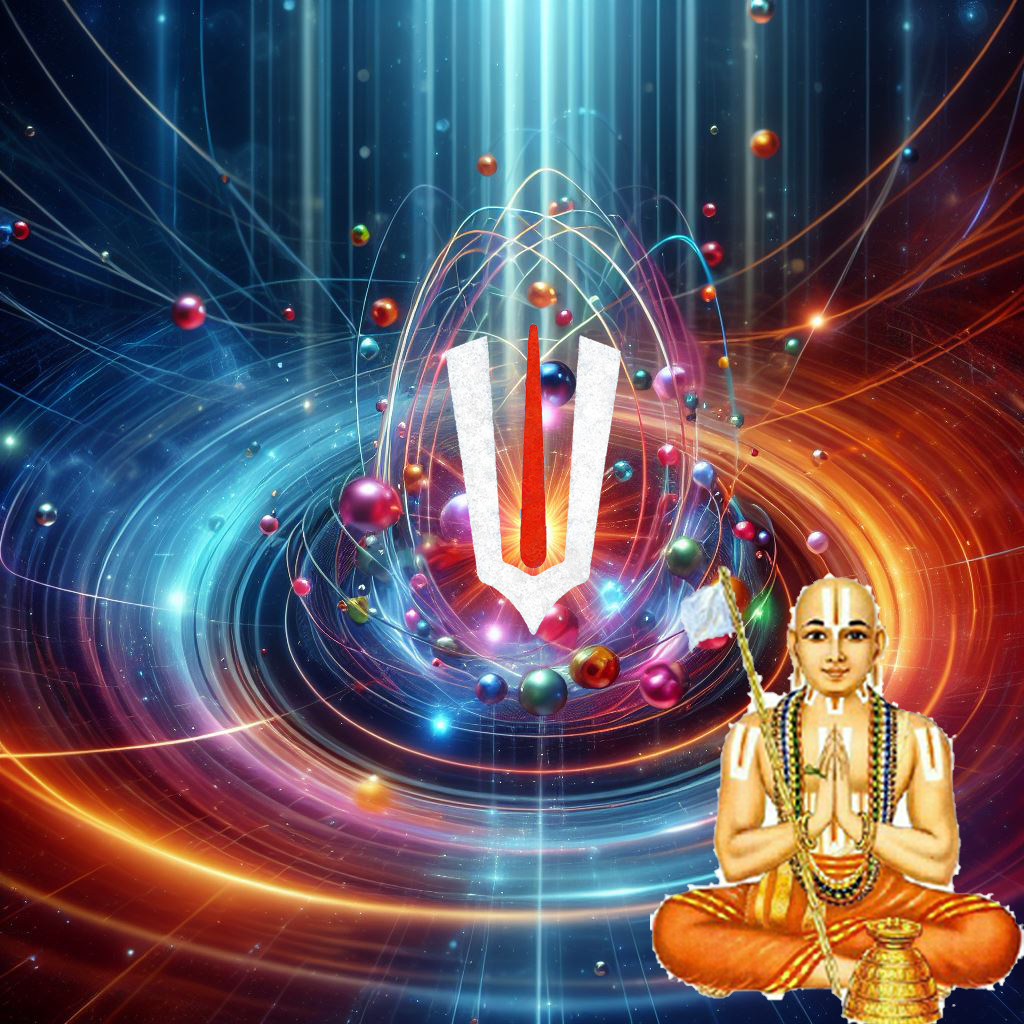
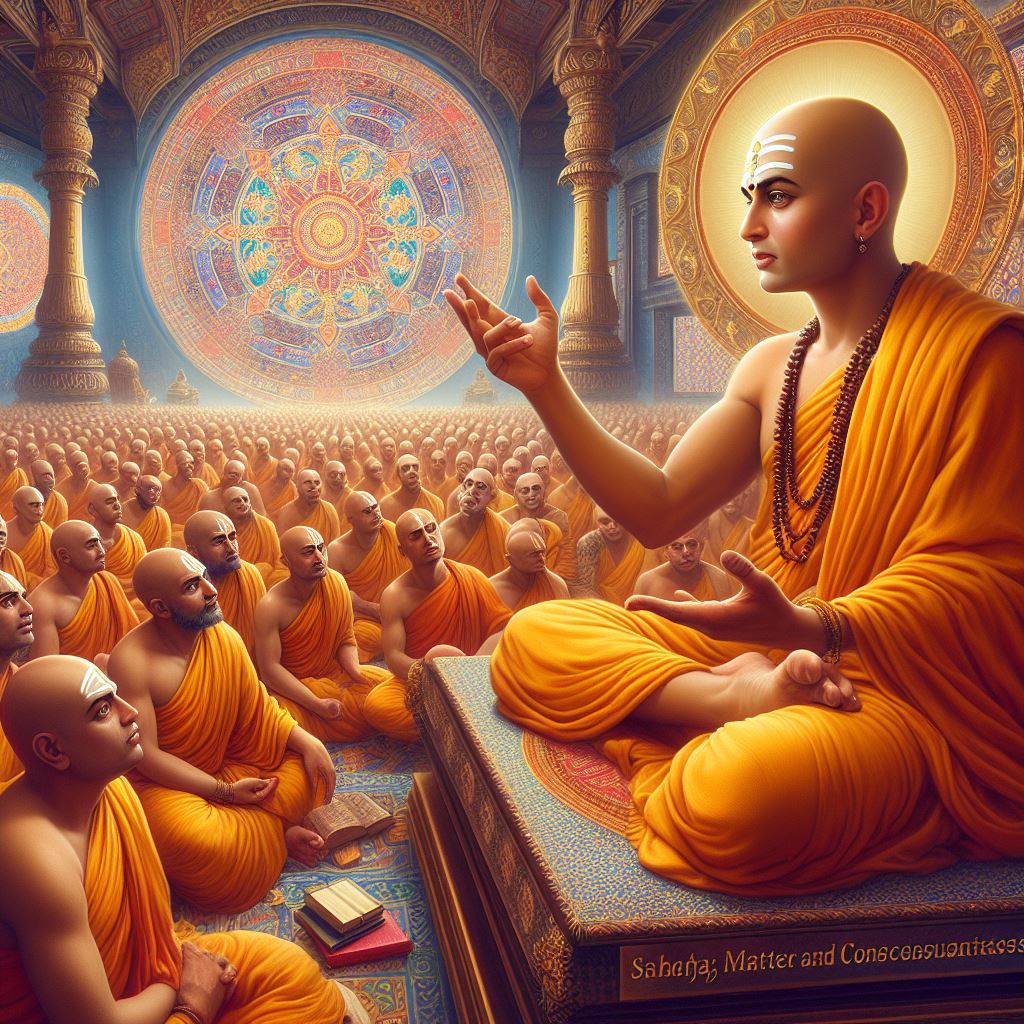
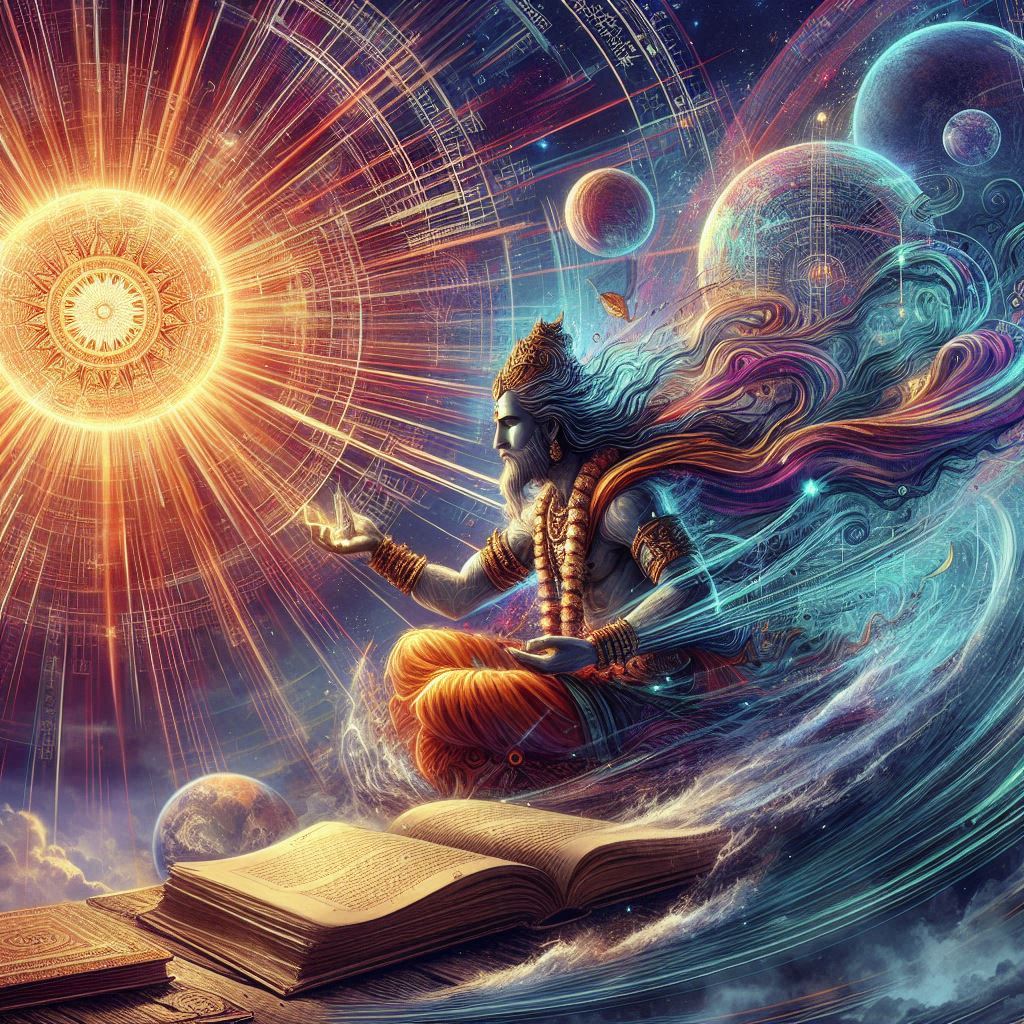
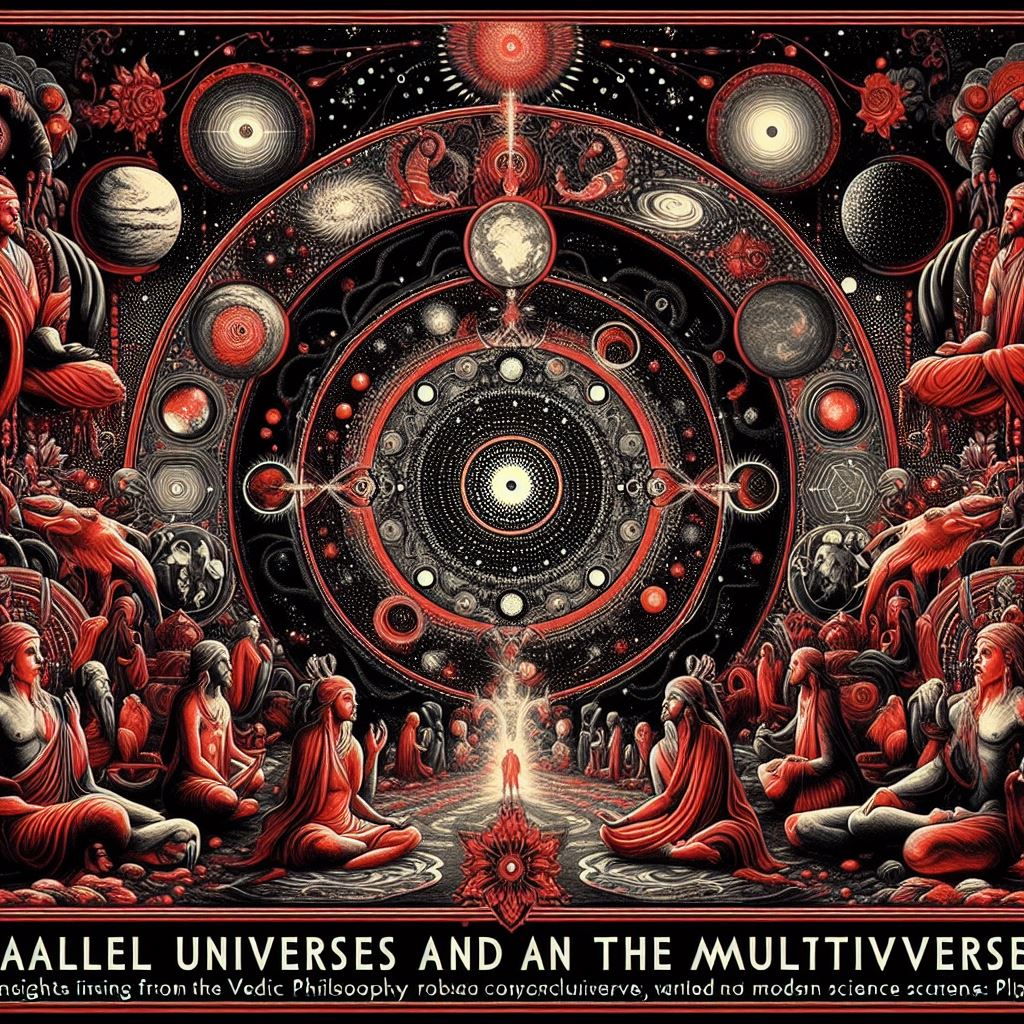

Origin of Science
The Psychospiritual Roots of Crime
Unveiling 54 Vedic Scientists
The Existence of the Soul: Exploring Neuroscience, Quantum Physics and Vedic Philosophy
Temporal Relativity in Vedic Literature: An Interdisciplinary Analysis of Time Dilation Narratives
Acharya Kaṇāda: The Ancient Sage Who Discovered the Atom
Evidence of Vedic Sanātana Hinduism as a Global Dharma
Perception of Quantum Gravity and Field Theory in the Vedas
String Theory as Mentioned in Veda
Sanskrit’s Role in Advancing AI: A Comprehensive Study
The Vedic Model of the Mind: A Contemporary Exploration
Vedic Contributions to Geometry: Unveiling the Origins of Mathematics
Matter and Consciousness in Achintya Bhedābheda: Bridging with Quantum Physics